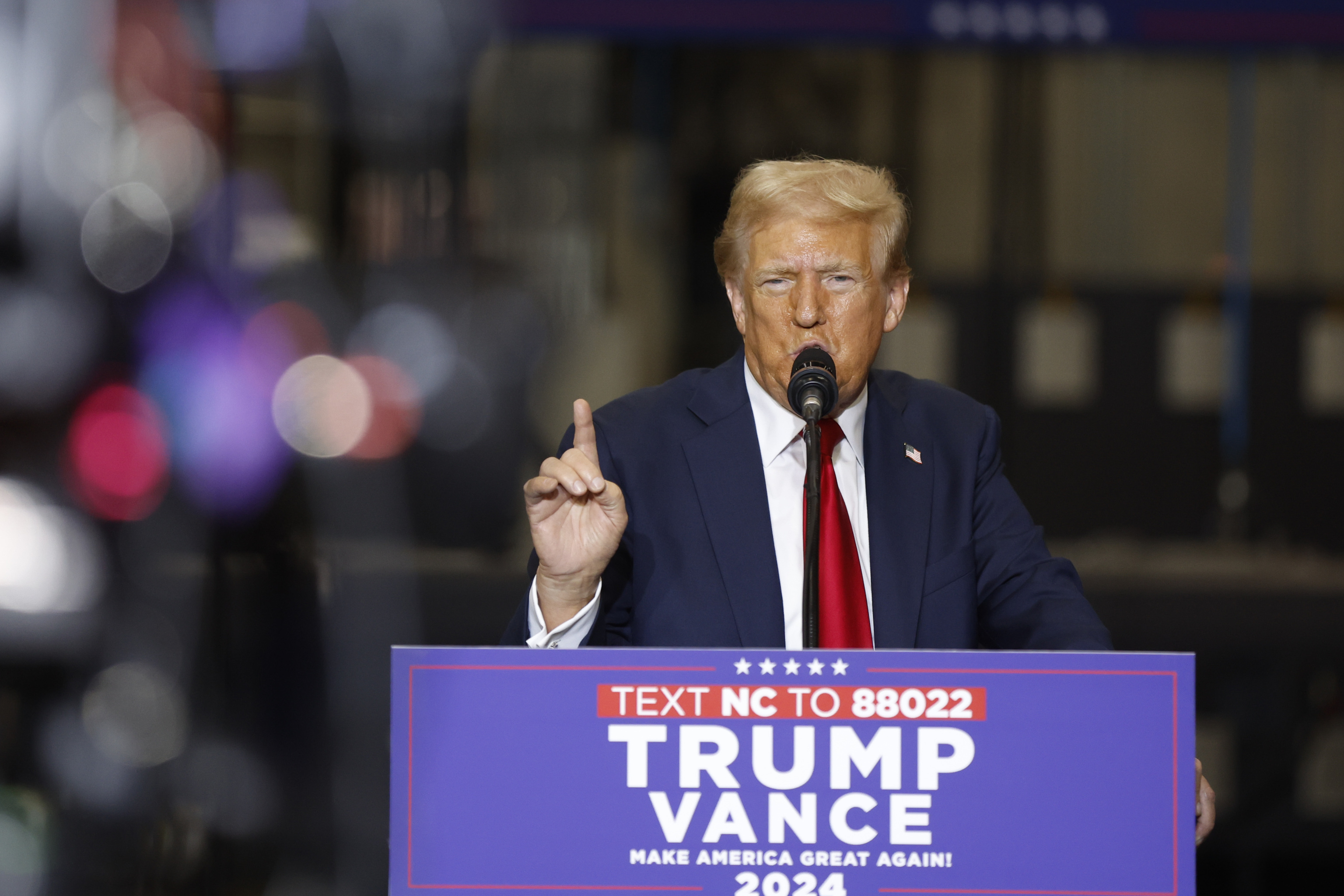Former President Donald Trump, who has made anti-immigration rhetoric a key part of his reelection campaign, warned Wednesday that he would kick out hundreds of thousands of immigrants who have entered the country under two key Biden administration programs if he's reelected.
Speaking to Fox News, Trump railed against two immigration programs created by the Biden administration to encourage migrants not to come directly to the southern border to seek asylum and make the region less chaotic.
Trump said he would make the more than 1 million people who have entered the U.S. under the two programs leave: "Get ready to leave because you're going to be going out real fast."
Trump has already promised a vast crackdown on immigration if he's reelected, including a vow to carry out mass deportations of migrants. He made similar pledges during previous campaigns, but during his time as president, deportations never topped 350,000.
Under one Biden administration program, migrants as far south as the Mexican border with Guatemala can use a smartphone app called CBP One to schedule a date to come to an official U.S. border crossing to seek asylum. So far, 813,000 migrants have used that system since it was launched in January 2023.
Separately, the administration launched a program last year that allows 30,000 people a month from Cuba, Haiti, Nicaragua and Venezuela to come to the United States if they have a financial sponsor, pass background vetting and buy a plane ticket to fly into an American airport instead of going to the southern border. About 530,000 people have come to the U.S. under that program.
Migrants using both programs are admitted to the country under humanitarian parole for two years. The Biden administration has touted both policies as ways to reduce chaos at the border with Mexico, cut out vicious smuggling networks and allow for more vetting of migrants before they enter the country.
But Republicans say both programs essentially amount to an end-run around the country's immigration laws, which are set by Congress, and that the Biden administration is admitting people who otherwise would not qualify to come to the U.S.
Republican-led states have sued to stop both policies.
Following previous pledges for mass deportations of migrants, Trump and his chief immigration policy architect, Stephen Miller, are bringing more specifics on how he plans to carry them out in a second White House term, such as invoking wartime powers, relying on like-minded governors and using the military.
However, any efforts to deport migrants on such a large scale would almost certainly run into legal, logistical and financial challenges.
Immigration advocacy groups say that Trump's promises of mass deportations are sowing fear among migrant communities.
Esther Sung is the legal director for Justice Action Center. When Republican-led states sued to end the sponsorship program for Cubans, Haitians, Nicaraguans and Venezuelans the organization represented Americans who sponsored migrants to come to the U.S. and wanted to preserve the program.
A federal judge in Texas allowed the program to continue, saying the states hadn't proved they suffered financial harm because of it.
Sung said Wednesday in an emailed statement that the humanitarian parole authority has been used by administrations from both parties for more than 70 years and that no administration has ever tried to take back parole from migrants on the scale that Trump is suggesting.
She said the use of humanitarian parole allows families to reunite, allows others to flee persecution and fills crucial labor shortages.
"As demonstrated time and again, immigrants strengthen the communities they join, and our economy," she said. "Not only is this fear-mongering, but it is also extreme, unprecedented, and simply cruel."
